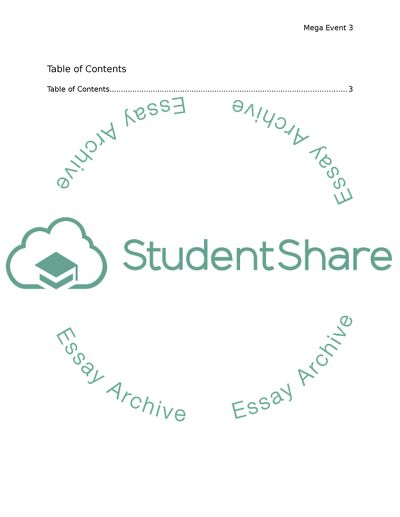Cite this document
(FIFA World Cup in South Africa - First Major Sporting Event Case Study, n.d.)
FIFA World Cup in South Africa - First Major Sporting Event Case Study. Retrieved from https://studentshare.org/sports-and-recreation/1745359-produce-a-report-which-critically-appraises-the-issues-and-impacts-arising-from-an-urban-destination-hosting-a-mega-event
FIFA World Cup in South Africa - First Major Sporting Event Case Study. Retrieved from https://studentshare.org/sports-and-recreation/1745359-produce-a-report-which-critically-appraises-the-issues-and-impacts-arising-from-an-urban-destination-hosting-a-mega-event
(FIFA World Cup in South Africa - First Major Sporting Event Case Study)
FIFA World Cup in South Africa - First Major Sporting Event Case Study. https://studentshare.org/sports-and-recreation/1745359-produce-a-report-which-critically-appraises-the-issues-and-impacts-arising-from-an-urban-destination-hosting-a-mega-event.
FIFA World Cup in South Africa - First Major Sporting Event Case Study. https://studentshare.org/sports-and-recreation/1745359-produce-a-report-which-critically-appraises-the-issues-and-impacts-arising-from-an-urban-destination-hosting-a-mega-event.
“FIFA World Cup in South Africa - First Major Sporting Event Case Study”, n.d. https://studentshare.org/sports-and-recreation/1745359-produce-a-report-which-critically-appraises-the-issues-and-impacts-arising-from-an-urban-destination-hosting-a-mega-event.


